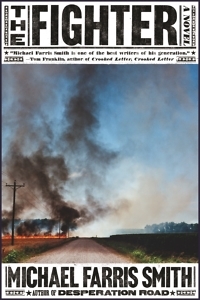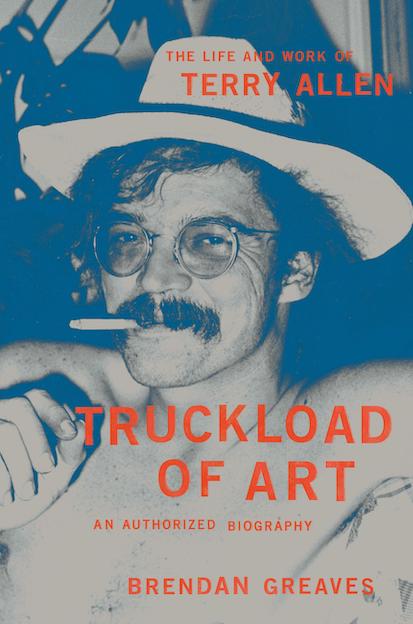Forever Needing Something Stronger
Michal Farris Smith’s protagonist in The Fighter is shattered but persistent
In the opening chapters of The Fighter—Michael Farris Smith’s latest tale of crime and other dark corners of human struggle in the Mississippi Delta—broken-down brawler Jack Boucher has reached the last frayed edge of his nerve. He has only a handful of days to pull together a large amount of money—so large it would save his foster mother’s house from imminent foreclosure, pay off a lethal debt to ruthless Big Momma Sweet, and clear him of a raft of other debts from a life of impulsive choices and no-win tangles. But these troubles are not his worst.
 A prizefighter in constant pain from a career of brutal wins and losses, Jack lives at the mercy of “the headache that would forever need something stronger.” Pills and booze help him cope with the moment at hand, but he knows his mind will go on paying a bigger and bigger price for the life he’s chosen. To keep things straight, Jack carries a notebook filled with reminders: “By each name he had written friend or foe. By each address he had written safe or stay away. The pages were filled with fragments or directions and phone numbers and what he owed and who he owed it to and other notes he had written out of frustration or anger or despair, notes to remind him of which world he belonged to.”
A prizefighter in constant pain from a career of brutal wins and losses, Jack lives at the mercy of “the headache that would forever need something stronger.” Pills and booze help him cope with the moment at hand, but he knows his mind will go on paying a bigger and bigger price for the life he’s chosen. To keep things straight, Jack carries a notebook filled with reminders: “By each name he had written friend or foe. By each address he had written safe or stay away. The pages were filled with fragments or directions and phone numbers and what he owed and who he owed it to and other notes he had written out of frustration or anger or despair, notes to remind him of which world he belonged to.”
These notes enrich our understanding of Jack’s inner world, detailing a storied history of self-sabotage and desperation. Looked at one way, Jack is a protagonist we’ve seen innumerable times before—a white, aging, hard-drinking Southern man returning home to confront a pileup of personal wreckage. But Jack’s physical and mental vulnerability startles this familiar narrative into something fresh.
Jack’s compromised memory places readers in an intriguing position, as we sometimes remember details or plot points from earlier scenes that Jack himself can no longer bring to mind: “Jack closed his eyes and searched the black spot in his mind. His face in a grimace of frustration and pressing his fingers against his forehead as if trying to force his thoughts into giving him answers. He heard the jingles and bells of the slot machines and he heard old men laughing but he could see no faces and hear no names.”
 The deep bond between Jack and his foster mother, Maryann, forms the emotional core of the novel. A woman who fought her own battles, Maryann has now reached the end of a long war with dementia. At her bedside, Jack contemplates the latest in a streak of bitter losses. “He stared at Maryann and he knew what was coming for him. His own mind invaded by vast expanses of nothingness that had crept in like lava and inched its way across the green earth and burned without regard for splendor or necessity. So many fists and knees and blows to the head that could not be taken back. Could not be erased and all the damage done and feeding himself for years with whatever could medicate for the moment. For the night. And he felt the erosion but he kept feeding the whirlwind that ripped the fertile chunks of memory away.”
The deep bond between Jack and his foster mother, Maryann, forms the emotional core of the novel. A woman who fought her own battles, Maryann has now reached the end of a long war with dementia. At her bedside, Jack contemplates the latest in a streak of bitter losses. “He stared at Maryann and he knew what was coming for him. His own mind invaded by vast expanses of nothingness that had crept in like lava and inched its way across the green earth and burned without regard for splendor or necessity. So many fists and knees and blows to the head that could not be taken back. Could not be erased and all the damage done and feeding himself for years with whatever could medicate for the moment. For the night. And he felt the erosion but he kept feeding the whirlwind that ripped the fertile chunks of memory away.”
Jack’s perilous efforts to navigate these threats send him into the paths of others who have built nebulous, off-book lives. Appropriately, there’s The Outlaw Carnival, run by a pragmatic manager named Baron, who happens upon Jack’s problem and can’t help but involve himself. At Baron’s side is Annette—a culturally updated Tattooed Lady with a heart of gold. Big Momma Sweet hangs over the novel as Jack’s greatest nemesis: to owe her money is to watch your life’s clock running down, fast. These supporting characters form a kind of archetypal backdrop for Jack, whose depth and humanity provide the true engine for The Fighter.
With this new novel, Michael Farris Smith adds another memorable work to his growing list of tough-minded, fascinating Mississippi Delta stories. In Rivers, his 2013 debut of environmental disaster and bare-boned survival, he proved that his powers of imagination and plotting are more than equal to the task of spinning a great tale. His follow-up, Desperation Road, though drawn on a far smaller canvas, offers action sequences and jolts of surprise that shine through.
The Fighter brings together everything Smith does well. Jack’s unpredictable state of mind and body permeate the aesthetic landscape of the story. We feel the anxiety and suspense as he tries, once more, to drag himself up from the mat for another round. If he ends up getting pummeled, we never once think of looking away.

Emily Choate holds an M.F.A. from Sarah Lawrence College. Her fiction has been published in Shenandoah, The Florida Review, Tupelo Quarterly, and The Double Dealer, and her nonfiction has appeared in Yemassee, Late Night Library, and elsewhere. She lives in Nashville, where she’s working on a novel.


